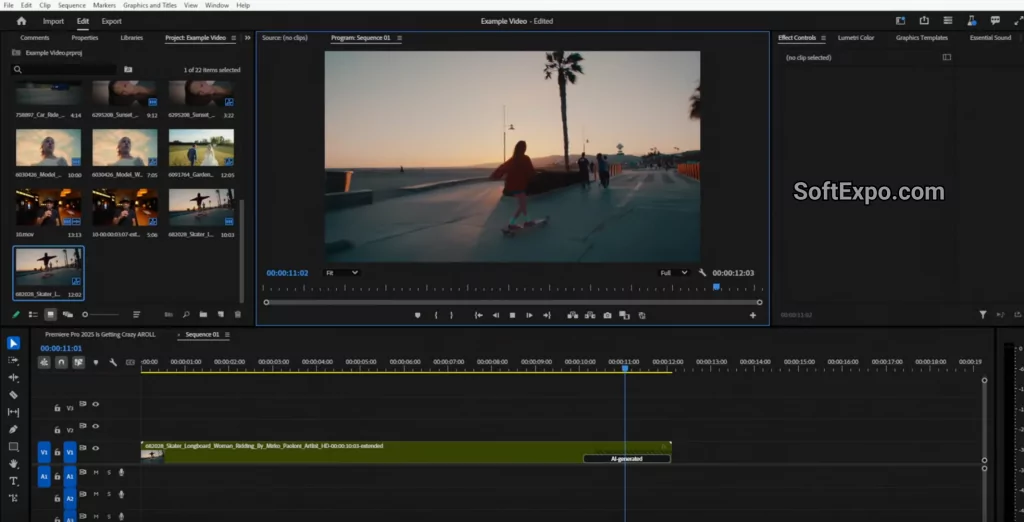All rights reserved © 2026
Video editing functions as a process of narrative building rather than a demanding battlefield experience. Adobe Premiere Pro stands apart from other NLEs by enabling users to keep editing their project from the chair while the rest of the pipeline functions automatically. The NLE Premiere Pro operates at a comfortable middle position within modern post-production workflows because it handles mixed codecs without distress and works harmoniously with After Effects for compositing and Media Encoder for output preparation while maintaining sufficient timeline space to discover both pace and breathing room. The 25.x cycle delivers faster discovery functions together with improved organization features for large productions and reliable performance when multiple editors collaborate on a project.
Premiere provides functionality for complex projects through its support of multiple video formats such as smartphone H.264 and mirrorless Log and ProRes and archival files recovered from old drives. Users can work directly with footage while proxying problematic media segments and taking advantage of GPU processing for demanding operations. Adobe After Effects 2025 — Free Download serves design tasks while Adobe Audition 2025 — Free Download (Full Version) performs audio surgery and Adobe Media Encoder 2025 — Full Build manages export tasks without interrupting your editing process. The ability to remain seated while editing is Premiere’s core benefit which results in its selection for recurring series and long-term projects as well as marketing campaigns.
The first feeling is speed. JKL feels elastic; ripple trims do exactly what muscle memory expects; markers land where you meant them to land. Under time constraints you will appreciate the important details that help you stay on track: specific search features that locate the specific footage you want and color labels that provide visual guidance when working with multiple sequences and authentic color/metadata handling which eliminates visual uncertainty. The accumulation of small victories leads to a state of complete calm in the final picture.
The approach of teams that use “download and go” depends on having a consistent setup process. Many organizations use free version onboarding procedures with standalone/offline installation methods to prepare their bays without requiring account authentication. When the network becomes inaccessible offline activation allows editors to proceed with their work; IT departments may distribute pre-activated or patched versions to environments that require sign-in consistency through reproducible checksums. The goal of all system approaches is to create a boring workflow which frees up time to focus on interesting content creation.

The latest 25.x version of the software concentrates on eliminating user obstacles. The timeline search functions like a research tool instead of a random keyword generator and sequence label colors help you track multiple timelines during hectic days and general playback and organizational improvements decrease the number of small pauses that interrupt your work flow. The Windows version of the latest update continues to increase support for multiple platforms and enhances its handling of mixed media assets. A real week demonstrates the system enhancements which are not noticeable in demo presentations..
Free Download — full version standalone installer for Windows; offline activation (no login) where applicable.